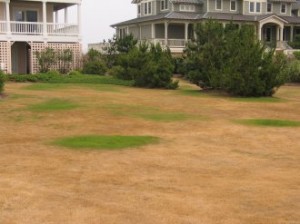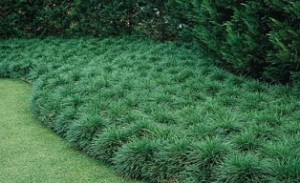FOR YOUR LAWN:
Rake
Rake away all the thatch, leaves, and whatever else may have accumulated on your lawn during the fall/winter months. Thatch, for those who are unsure, is dried up grass and weeds that gets mixed in with the living grass. If you do not remove the thatch it acts as a shield against water, oxygen, and other nutrients. Get it out of there.
Fertilize
Early spring is a great time to start spreading organic fertilizers or weed and feed applications. Corn gluten and Scott’s Weed and Feed are two of our favorites. This ensures that your lawn has the proper nutrients to start a healthy growing season. If you are unsure which fertilizer to apply, you can contact us or perform your own soil pH test. Soil pH tests will provide tons of valuable information that gives you great insight into what your lawn is craving.
Consider Aerating
Aeration will ensure the penetration of oxygen into your soil. Oxygen rich soil, as I am sure you know, returns the absolute best lawn growth.
FOR YOUR TREES AND SHRUBS:
Prune
Walk around your yard and trim off all the dead / excess branches that you find. Removing dead / dying branches before they have a chance to effect the rest of the tree/bush is essential to its health, not just the beauty. Dying branches can indicate a disease problem. Removing the branch is the sure way to prevent it from spreading.
Mulch
Applying a layer around 3 inches in depth of mulch around the bases of your bushes and trees provides a few different benefits. Two of the most notable reasons are that it guards the roots from the weather elements, and it provides nutrients for the plant. Remember to keep the mulch at-least an inch away from the trunk of tree/bush to prevent rot.
FOR THE WEEDS:
As soon as you see them, get rid of them
Early spring is the best time to remove the weeds before they have a chance to flower and spreed seeds. Once the seeds spread, even with spraying, they are hard to destroy. Also keep in mind that when the soil is wet/damp, the weeds are easier to pull.
These are just a few common ways you can begin to get your lawn ready for spring, of course there are more, but we think you get the idea!
For a list of the services we can help you with, visit blaircountylawnservice.com/services/

